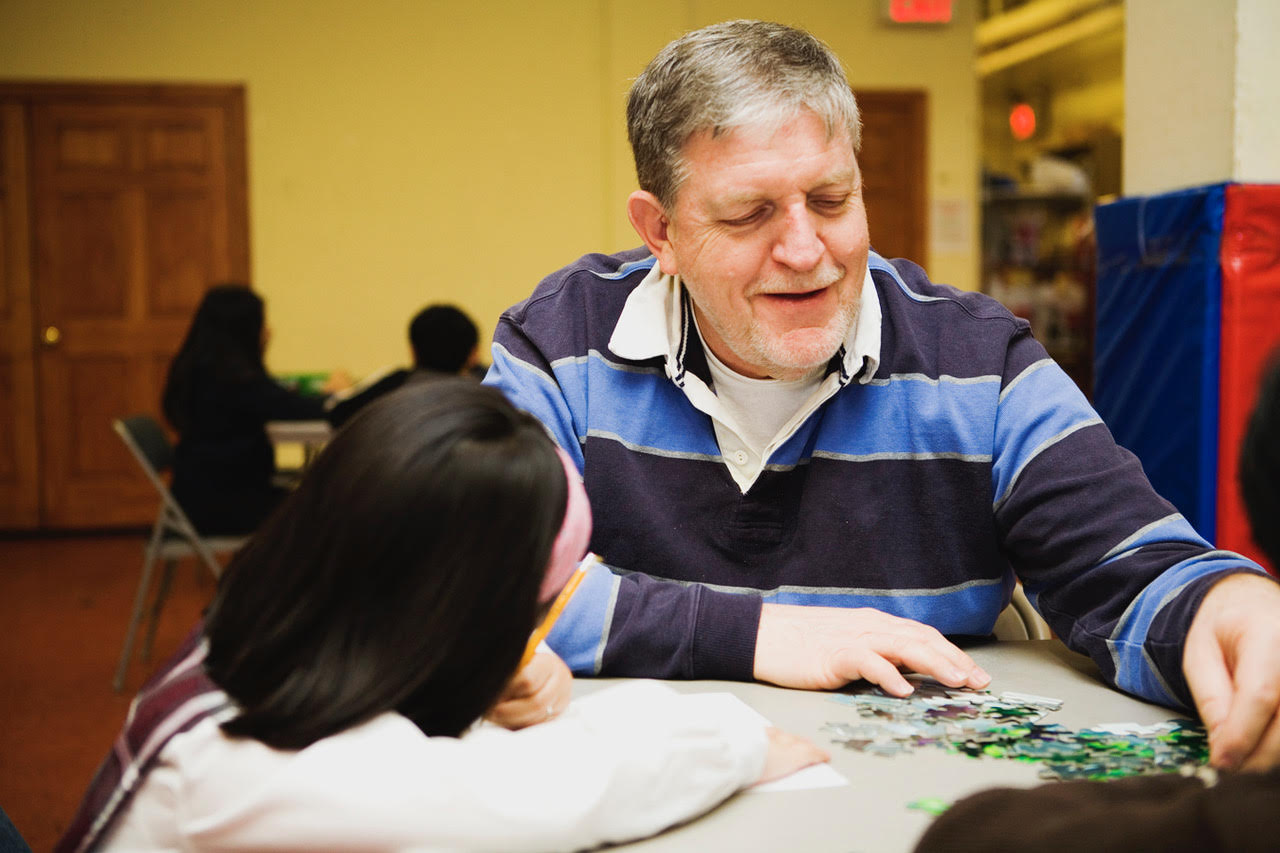A white Baptist Preacher from Texas moves to NewYork City to engage in HIV/AIDS work in the early 90’s.
I give you Ronnie Adams, today’s feature in our Tuesday Series: People who Help us Imagine More for Humanity.
My first job in NYC was alongside Ronnie at Metro Baptist Church and Rauschenbuch Metro Ministries in Hells Kitchen, steps from Times Square. Humble and compassionate with an uncanny ability to know when to be strong, Ronnie quickly became one I admire. After 45 years of ministry related positions (see more below), 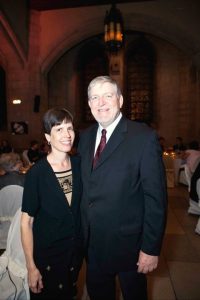 Ronnie retired in 2017. Since then, he’s married (yeah! see wife Barbara!), volunteered, traveled and looks for meaningful ways to revitalize his life.
Ronnie retired in 2017. Since then, he’s married (yeah! see wife Barbara!), volunteered, traveled and looks for meaningful ways to revitalize his life.
While our time intersected, I saw firsthand Ronnie’s care for hundreds of children through summer camps in Hells Kitchen and Greater Restoration Baptist Church in Crown Heights, Brooklyn, and was a sponge of a mentee witnessing his work at Housing Works, Miracle House, and Covenant House.
One of the highlights of my life was leading a small group at Housing Works on Easter Sunday, subbing for Ronnie who was out of town. Imagine speaking hope of the resurrection with people living with HIV/Aids. Imagine what I learned and how I was changed.
Ronnie, thanks for using your life to move us to imagine better things for tomorrow. Thanks for your interview!
Raising Imagination: What three words would you use to describe yourself?
Ronnie Adams: Patient, Helping, Shy
RI: What is one thing you’ve done in your life that significantly impacts the person you’ve become?
RA: I never knew that volunteering for the AIDS Interfaith Network of Collin County in Plano, Texas would so radically change my life. I was a Minister with Single Adults at the time at First Baptist Church Plano and recognized that most of those being affected by AIDS were single so I should be involved. My pastor/supervisor thought it was a good idea, so I began a journey that changed my life in so many incredible ways.
The first clients I worked with were a gay couple that was dealing with the heartbreak of one being close to death due to an AIDS-related illness. To help care for them, to see the pain and suffering and the incredible love that the partners had for each other and then to be in the room when “B” breathed his last breath was a moment of sheer agony and also a call to be a part of the AIDS community.
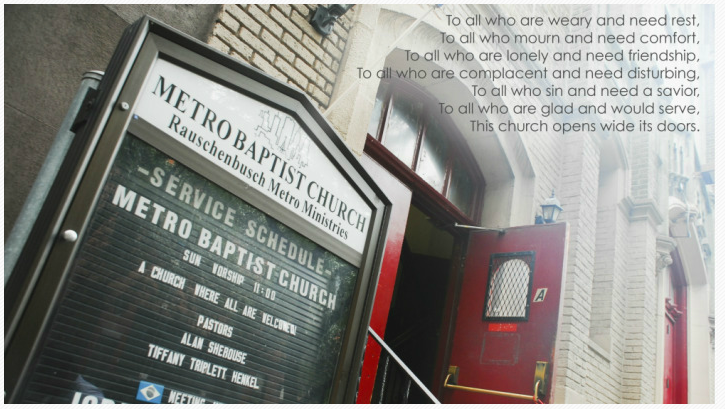 For the next 24 years I would have the wonderful privilege to serve including the honor to be placed in New York City by the Cooperative Baptist Fellowship to minister with the over 100,000 residents living with HIV/AIDS and be a part of the staff and congregation of Metro Baptist Church, one of the first churches in NYC to declare themselves a “Sanctuary Church” for those affected by HIV/AIDS.
For the next 24 years I would have the wonderful privilege to serve including the honor to be placed in New York City by the Cooperative Baptist Fellowship to minister with the over 100,000 residents living with HIV/AIDS and be a part of the staff and congregation of Metro Baptist Church, one of the first churches in NYC to declare themselves a “Sanctuary Church” for those affected by HIV/AIDS.
” I can tell you time after time I saw a spiritual imagination awaken in friends that began to realize they were free to be themselves, to imagine a world where they are accepted, loved and can use their talents and gifts to bring change.
RI: What role did imagination play in your career?
RA: So many of the folks I worked with over the years had a history of people telling them what was wrong with them, their failures, and many that God was judging them and they had no chance to be a part of God’s love. 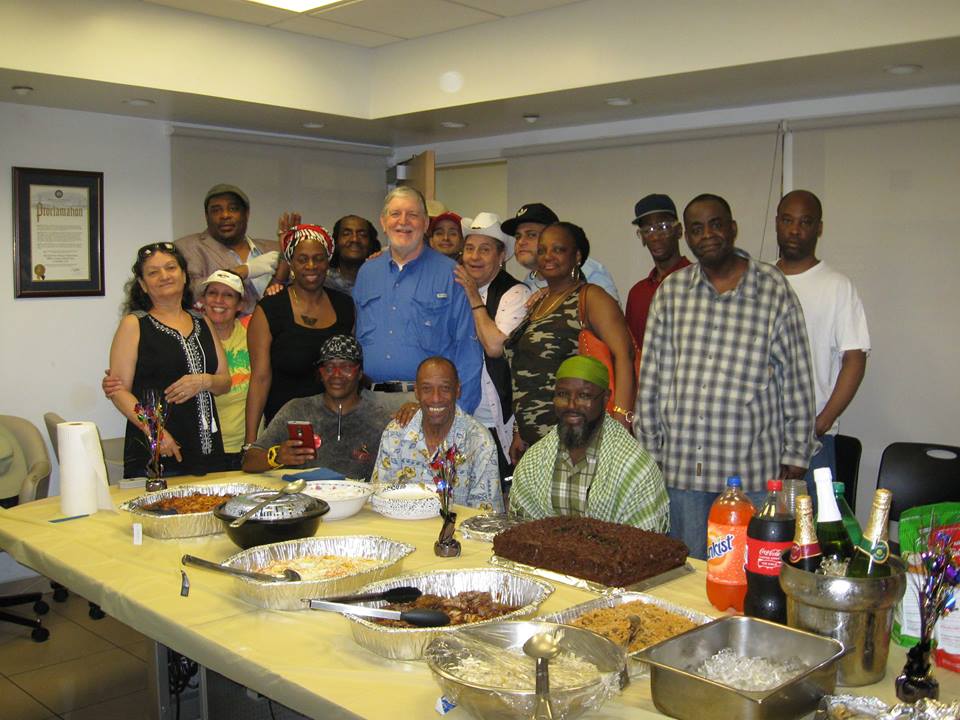
Self-negativity destroys imagination, why dream if you are doomed.
One of my favorite parts of my job was to help encourage others to imagine that God was on their side, their advocate, their defender, to imagine a God of love that was pained by their hurt and failures but has forgiven, forgotten and now ready to move on. I can tell you time after time I saw a spiritual imagination awaken in friends that began to realize they were free to be themselves, to imagine a world where they are accepted, loved and can use their talents and gifts to bring change.
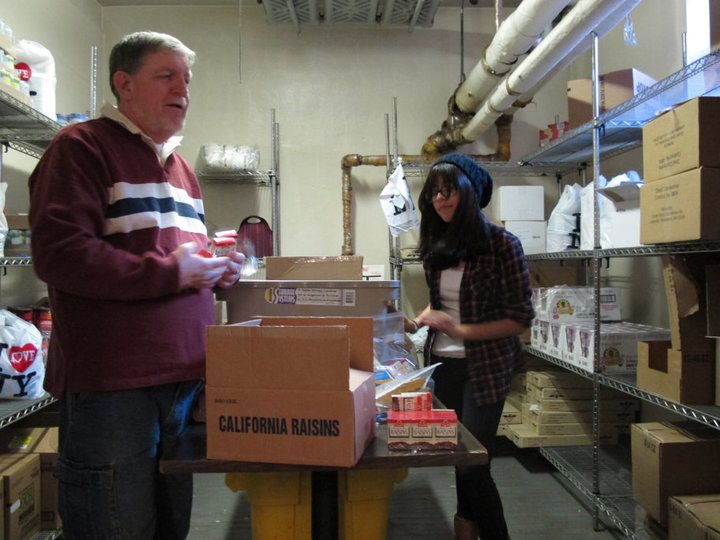 RI: That is beautiful, Ronnie. Can you speak about when, if ever, imagination is dangerous?
RI: That is beautiful, Ronnie. Can you speak about when, if ever, imagination is dangerous?
RA: Imagination is dangerous when we internalize voices of hate, judgment and imagine that is who we are. We imagine we are worthless, have no future and therefore don’t see beyond our pain.
On the flip side, pain can spear us to imagination, only if we realize it is a teachable tool. Almost every great world movement came from someone/group that chose not to stay in the hell of their agony and had the courage and energy to imagine life beyond it for themselves and others and put feet to their imagination.
RI: Yes!! So imagination paired with what will bring societal change?
RA: Imagination paired with a passion for justice will empower us to see the world from different perspectives and not just our own. When we seek to make not everyone like us but for everyone to know that their voice is important and needed to make a world where people of all cultures, economic levels, genders are free to imagine their dreams. Justice does not mean we all agree but we give those with dissenting voices, freedom to speak and we more than tolerate different ideas, we embrace them! Societal change happens when we are free to imagine a world that embraces our wide and varied imaginations!
RI: What do you wish those on opposite ends of political/ religious/ ideological spectrums would imagine together?
RA: I wish we could dream, imagine a world where there was nothing, absolutely nothing such as politics, power, money, biases that would hinder us from agreeing that no person should have to 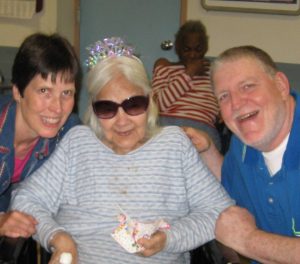 go bed hungry, or scared of violence that might do them harm. Our world has enough money, scientific know-how, military might and energy to do this, it just takes an imagination that it can be done. Unrealistic, of course, but every great movement began with people the rest of the world laughed at, ignored or tried to silence.
go bed hungry, or scared of violence that might do them harm. Our world has enough money, scientific know-how, military might and energy to do this, it just takes an imagination that it can be done. Unrealistic, of course, but every great movement began with people the rest of the world laughed at, ignored or tried to silence.
RI: What propels your imagination?
RA: My quiet time in the mornings is paramount. I am lucky in that I live by a tidal lagoon and big park in Manhattan, so reading my morning devotion, praying and just sitting still for a moment allowing God to speak back helps me to feel free to imagine what I can do with my voice, my life, my energy.
Reading and hearing of how people have imagined in the Bible and history, and have had the courage to make that an active dream that turns into a movement has always been a great energy booster to what I am imagining.
RI: You’ve spent a lot of your life working with children, and you’ve informally adopted many as your own. How can we best engage young children in advocacy and activism?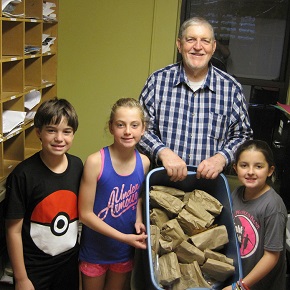
RA: Making age-appropriate opportunities for children to learn about the needs of others and how their voice is important. Then allowing children to express their thoughts on issues through art or music.
Seeing parents involved and sharing why we sometimes have to be heard, is important, in addition to reading books and watching stories of those that have lead social movements of the past and are doing so today.
Thank you, Ronnie.
Blessings on you as you live into this phase of your life and imagine what retirement from a professional life of ministry will look like for you and your new wife Barbara.
Here’s to imagining that hunger free, violence free, bias free world and doing what needs to be done to get us there.

